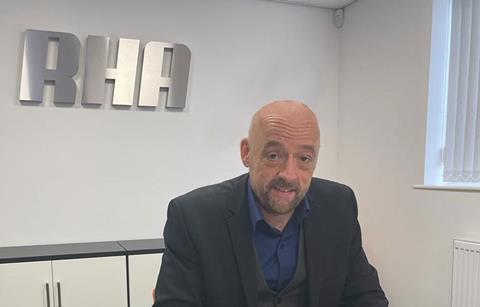Increasing cost pressures are reaching breaking point for many hauliers. Our members say things are getting even tougher as the economy struggles and firms go bust.

Freight volumes are down by 10% to 15% with fewer goods being moved around as the cost-of-living crisis bites.
The lead up to Christmas – traditionally a bumper period for operators moving retail goods – is the worst since 2008, according to members.
Similarly, the British Retail Consortium said this week that retail sales growth remained sluggish in November despite Black Friday deals.
Our members’ costs (excluding fuel) have increased by nearly 10% according to our annual survey. This is on top of a 20% increase last year.
Fleets have been downsized by up to 30% in the last three years across all sectors and sizes of operator.
In short, costs are still rising faster than inflation, profits are meagre, and hauliers are saying that customers are not wanting to pay reasonable prices.
The worst-case scenario has come true for many. Business failures are on the rise. A recent report concluded that a record number of hauliers (463) have gone bust this year – more than twice as many as last year.
And there are 1,300 fewer operator licences than last year, according to Traffic Commissioner figures.
Supporting our industry on reducing costs and simplifying regulation is a key RHA priority to help drive business on our roads.
The criticality of our industry to support the economy and drive growth cannot be overstated. Commercial vehicles are economic enablers – essential cogs in a complex, interconnected supply chain that sits at the heart of everything.
Plugging skills gaps and building the foundations for a future workforce is essential. We need more support from government to help us attract, train and retain staff.
There’s a worsening shortage of heavy vehicle technicians and a declining number of training providers offering the courses. Wheels not turning adds cost; improved access to apprenticeship funding and making more training options accessible would help firms reduce costs on staff recruitment and development.
Fuel is a big chunk of a firm’s operating costs. We’re campaigning for continuing freezes on fuel duty – and an emissions-linked rebate to support firms to adopt cleaner fuels such as HVO as the industry decarbonises.
More investment in improving our roads will keep traffic moving, meaning people and goods can get to their destinations quicker and cheaper.
These aren’t parochial ‘asks’ to just benefit our industry. Rather they are practical measures to help us drive growth in an economy that depends on our ubiquity and efficiency.
Richard Smith, MD, RHA
















